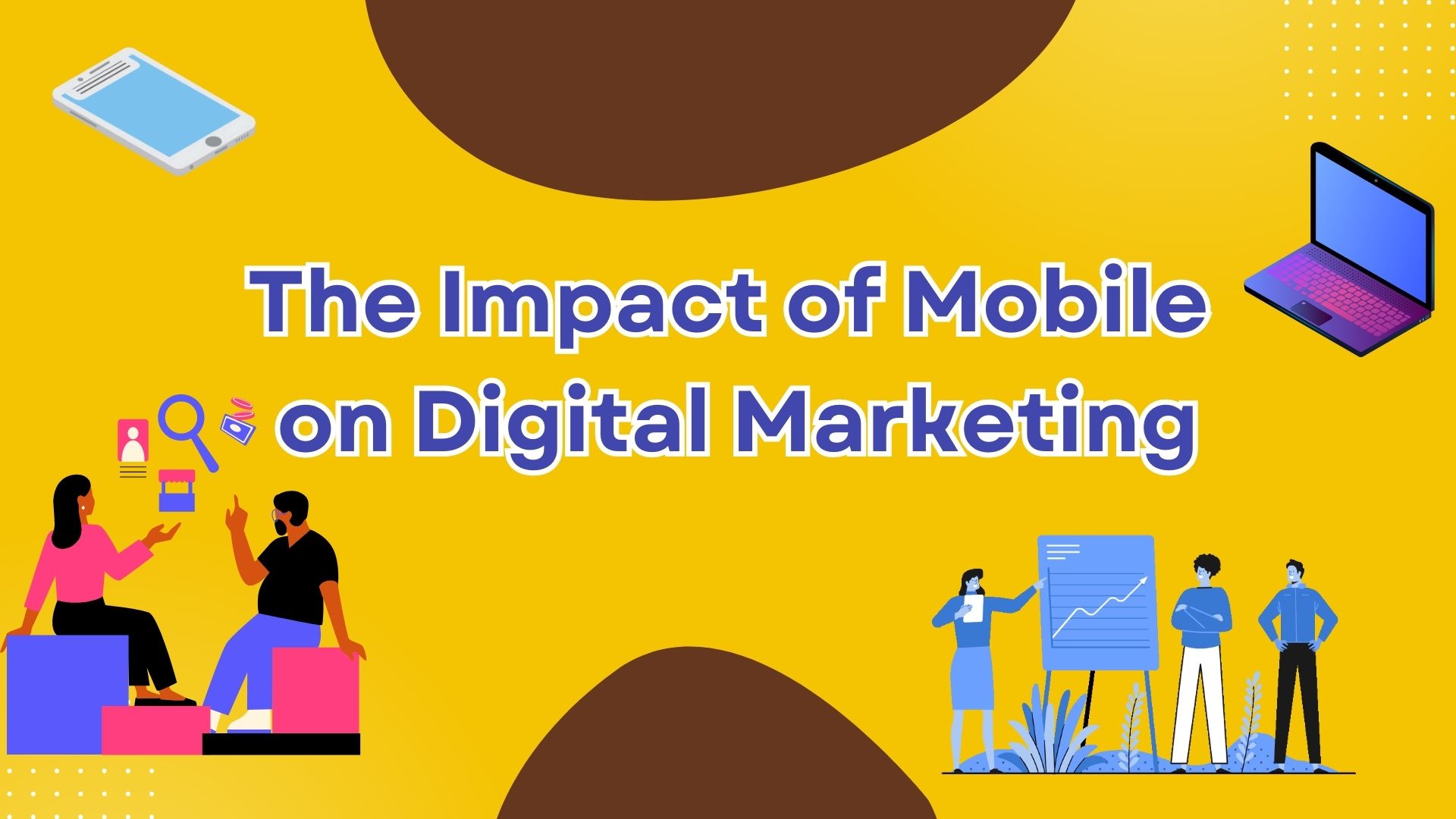The Impact of Mobile on Digital Marketing
Mobile devices have revolutionized the way we live, work, and communicate. From smartphones to tablets, mobile devices have become an integral part of our daily lives, and this has had a significant impact on digital marketing. In this blog, we’ll explore the impact of mobile on digital marketing and why it’s essential to have a mobile-first approach.
Mobile Usage is Increasing
Mobile usage has been on the rise for several years now, and it’s showing no signs of slowing down. According to a report by Statista, there are over 3.8 billion smartphone users worldwide, and this number is expected to grow to 4.3 billion by 2023. This means that brands that aren’t optimizing their digital marketing strategies for mobile are missing out on a significant portion of their target audience.
Mobile Devices Have Changed Consumer Behavior
The prevalence of mobile devices has also changed the way consumers interact with brands. Consumers now expect seamless mobile experiences that are personalized, relevant, and convenient. This means that brands need to adapt their digital marketing strategies to meet the demands of mobile users.
Mobile-Friendly Websites are a Must
Having a mobile-friendly website is no longer an option; it’s a necessity. Google has even introduced mobile-first indexing, which means that it now uses the mobile version of your website as the primary index for ranking your pages. This underscores the importance of having a responsive website that’s optimized for mobile devices.
Mobile Apps Are Gaining Popularity
Mobile apps have become increasingly popular, with many brands investing in them as a way to engage with their customers and provide personalized experiences. Mobile apps can also be a powerful tool for driving customer loyalty and increasing customer retention.
Mobile Advertising is Booming
Mobile advertising has become a significant revenue source for many businesses, with mobile ad spend expected to reach $240 billion in 2022. Brands are increasingly using mobile advertising to reach their target audience and drive conversions. Mobile ads also offer unique targeting options, such as location-based targeting, which can be highly effective in reaching consumers on the go.
In conclusion, mobile has had a profound impact on digital marketing, and it’s essential for brands to have a mobile-first approach. This means optimizing your website and digital marketing campaigns for mobile devices, investing in mobile apps, and leveraging mobile advertising to reach your target audience. By embracing mobile, brands can stay ahead of the curve and engage with their customers in a meaningful way.
Author Profile

- Talks about SEO, SMO, Google Ads, Meta Ads, and Digital Marketing
- Agnijeet Guha is a driven and enthusiastic Digital Marketer, currently pursuing an MBA in Digital Marketing from the prestigious Bengal School of Business Studies in Kolkata. He is deeply passionate about the field of digital marketing and strives to excel in it by constantly upgrading his knowledge and skills.
Latest entries
- 2023.03.28How to Use Storytelling in Social Media Marketing: Tips and Techniques
- 2023.03.28How to Use Micro-Moments to Engage with Your Audience | A Comprehensive Guide
- 2023.03.28How to Use Web Push Notifications to Engage with Your Audience | Tips & Best Practices
- 2023.03.27How to Use Emotional Marketing to Connect with Your Audience | Tips & Strategies





